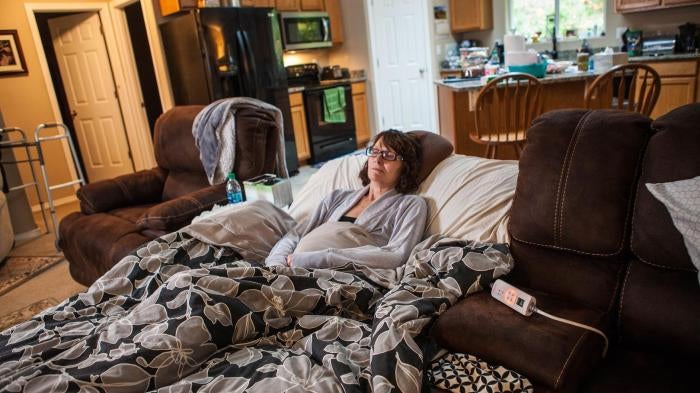The US state of Oregon announced it will postpone a vote on restricting prescription opioids to a large group of Medicaid patients.
If approved, Oregon Health Authority (OHA) would no longer cover any opioids for Medicaid patients with chronic back, neck, or spine conditions as well as fibromyalgia, a disorder characterized by widespread musculoskeletal pain. This policy would mark an unprecedented move by a state to mandate involuntary opioid dose reductions across a broad group of patients.
In a recent report, Human Rights Watch found that patients who are in pain suffer needlessly from these kinds of reductions, which destabilized their physical and mental health and, in some cases, led to suicide or the use of illicit drugs.
The US is in the midst of an overdose crisis that claimed more than 70,000 lives in 2017 alone. Opioids – prescription pills as well as illicit drugs like heroin and fentanyl – accounted for over half those deaths. This crisis needs to be addressed. But taking pain pills away from patients who need them is not the answer.
The Centers for Disease Control, the Federation of State Medical Boards, and other medical organizations discourage involuntary dose reductions for patients on opioids. In a recent letter, over 100 leaders in pain and addiction medicine said there was no scientific evidence to back Oregon’s policy change, and no infrastructure in place to ensure patient safety.
Oregon isn’t the only state to mandate dose reductions for chronic pain patients on opioids: Human Rights Watch found that six state Medicaid programs mandated tapering or maximum dose limits. But Oregon’s plan would go further than any other by denying any opioids to a broad class of patients, and in doing so would set a dangerous precedent.
Physician and patient activists have been raising concerns about Oregon’s tapering plan since August. Rather than back down, Oregon has opted for delay tactics and minor tweaks to its proposal, leaving physicians and providers in a state of perpetual uncertainty.
The OHA said it would postpone the vote after finding that one person set to vote on the proposal had a conflict of interest. What Oregon should do is reject the policy outright and adopt a policy that reflects scientific evidence and that keeps patients who are in pain safe.










